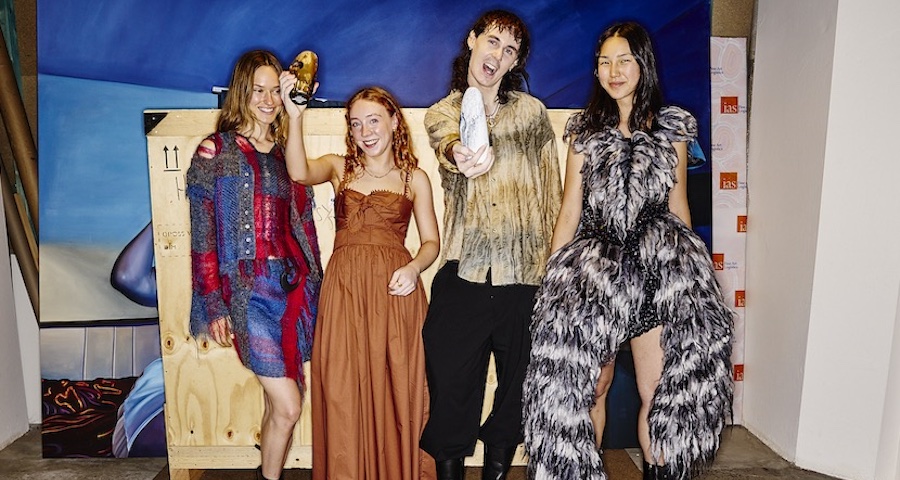Why couldn’t Australian fashion darling Dion Lee find a buyer?

- by Admin
- September 9, 2024

After failing to find a buyer, Dion Lee is set to leave the Australian fashion scene. In its prime, the 15-year-old brand was considered one of the country’s most promising, alongside the likes of Zimmermann and Camilla. Since the administration began in May, Dion Lee’s stock has been cleared in a warehouse sale with prices as low as 80 per cent off original retail. Right designs, wrong strategy Since May 22, Dion Lee has made A$3.2 million in sales but administrators are still hol
After failing to find a buyer, Dion Lee is set to leave the Australian fashion scene.In its prime, the 15-year-old brand was considered one of the country’s most promising, alongside the likes of Zimmermann and Camilla.Since the administration began in May, Dion Lee’s stock has been cleared in a warehouse sale with prices as low as 80 per cent off original retail. Right designs, wrong strategySince May 22, Dion Lee has made A$3.2 million in sales but administrators are still holding 15,000 items of clothing, excluding the brand’s pre-autumn 2024 stock.Yet the dVT Group, Dion Lee’s appointed administrators, stated that while there had been interest from potential buyers, no acceptable offer was as yet forthcoming.Rosanna Iacono, fashion industry expert and CEO of strategy consultancy The Growth Activists, said that without apparent potential, a transaction is unlikely. “From my experience in private equity, to make an acquisition of a distressed asset worthwhile, a buyer needs to see growth potential across both revenue and profitability, and a solid foundation in terms of operating model and talent, and must feel that the key current issues in the business are actually addressable,” Iacono told Inside Retail.“This would be the main reason the business was unable to find a buyer,” she added. But Iacono also highlighted the unique nature of Dion Lee as another potential reason why it was unable to find an appropriate buyer.“There are few Australian businesses operating successfully in the accessible luxury segment. Two that come to mind are Zimmermann and Camilla, both of whom have scaled across global geographies and channels to drive success,” Iacono explained.“With the vast majority of fashion groups in Australia operating at a more mainstream level, there are few natural homes for brands like Dion Lee locally and it may have had better success finding an acquirer outside of Australia, where there are many more luxury groups who are specialised in scaling high-end brands.”Australia gets fashion-forwardThe Australian fashion industry is grieving the loss of Dion Lee and the talent of its eponymous designer – its distinct style, fleet of celebrity fans and international recognition made it one of the country’s most promising brands.“The Australian fashion industry is certainly facing some challenging economic headwinds at the moment, with all discretionary categories of retail experiencing a reduction in consumption,” Iacono stated.Dion Lee is neither the first nor the only Australian fashion brand to falter this year, in what has been referred to as ‘the great reckoning’, Arnsdorf and Nique are also among the cohort of brands closing down their stores.“What we will likely see in the next few years is a rationalisation of the number of brands in the market, with a few key factors driving this,” Iacono projected.“These include an increasingly competitive global landscape with intense competition in the fast and ultra-fast fashion sectors, paradoxically also a rise in conscious consumption as a sustainability mindset kicks in with other more progressive consumers, continued supply-chain vulnerabilities due to the geopolitical landscape and other evolving economic challenges.”Even so, the collapse of Dion Lee is a lesson and not a rule for Australian fashion brands.There are many local designers that are still thriving, despite the financial headwinds and international competition – Viktoria & Woods, Camilla and Marc, Zimmermann, Christopher Esber, Aje, Camilla and St Agni appear to be going from strength to strength.“The main lesson here for other designer fashion businesses is the importance of adapting, innovating, and financially managing for resilience in a competitive global market,” Iacono concluded.“And matching with the right financial backers, who bring specialised and global sectoral expertise, is also critical for designer brands at the higher end of the market.”
The Latest News
-
December 22, 2024AFL legend Aaron Shattock placed in induced coma following freak accident while operating an excavator
-
December 22, 2024Test discard brings the heat after Boxing Day axing
-
December 22, 2024Australian cricket team at MCG: Near 60% win record, unbeaten for three years | Cricket News – Times of India
-
December 22, 2024Zheng to skip United Cup, focus on Aussie Open
-
December 22, 20242024 runner-up Qinwen Zheng pulls out of Australian Open lead-in event





